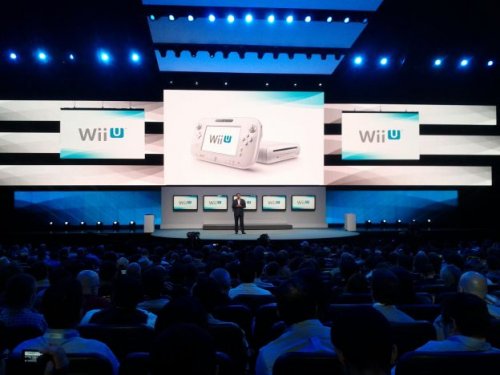This post has not been edited by the GamesBeat staff. Opinions by GamesBeat community writers do not necessarily reflect those of the staff.

So it’s come to this, has it, Nintendo? You’re now content to skulk in the corners of the Electronic Entertainment Expo (E3) with your innovative devices and sequels to 20-year-old Super Nintendo games? This once mighty company won’t even attempt to assert itself on a stage against the new titans of the age, Sony and Microsoft?
I’m not so out of touch as to think E3 in 2013 is as important as it was to the video game industry back when it started in 1995. So in one respect, I can understand why it seems like a good idea to skip the expense and hassle of a major press conference. I’d applaud the decision if I didn’t think it was yet another symptom of the isolationist culture that’s embedded itself somewhere deep within your business, Nintendo — leading you to behave like an old hermit stubbornly whittling away at the same wooden toys that used to bring the kids out to visit a long time ago.
The Nintendo Directs are welcome and informative, but you might be overestimating how widely they are spreading your message. Sure, dropping a prerecorded video message from some far-flung corner of the earth has gotten people plenty of attention before, but I doubt you want to apply that communications model to your free-market enterprise. There’s something to be said for putting on a show at a venue where media, distributors, and industry officials will be converging for several days. You don’t want to leave it up to everyone to watch a 24-minute YouTube video presentation set against a stark white background.
With the Wii U, you’ve met the bare minimum requirements to say you launched a new console: You shipped boxes of them to stores, released a glossed-up version of New Super Mario Bros. Wii, and put out a variation on the theme of “Look at Us, We’re Innovative” with Nintendo Land. There was no effective marketing done to actually sell the Wii U to the people who bought the original Wii. Your promises of third-party game support have thus far fallen short, your own lineup of software keeps suffering delays, and the latest series of advertisements for the console show families struggling to put two cogent thoughts together about why they even bought the damn console in the first place.
You’re not in the clear yet, and it seems like a bad time to rely on others to come to you, especially when Sony and Microsoft won’t be waiting patiently for people to pass by their E3 booths to show them their versions of the next big thing in gaming. It’s not that the IGNs, GameSpots, and Kotakus of the Internet won’t notice you at E3. They will, and the gaming-informed will be able to recite by heart your holiday release schedule by the end of the show.
The problem is with U.S.A. Today, The New York Times, and The Wall Street Journal — the big types of mainstream news sources whose video game coverage largely consists of statements from congressmen and senators panning the medium for its portrayals of violence. They are going to be hard-pressed to find time for your discreet show when they are writing about how Microsoft will be taking over the suburban living room with the new Xbox this fall, with Sony’s PlayStation 4 tagging close behind.
Maybe in a year — when you’ve established a strong lineup of games for the Wii U, when the anticipation around next-generation consoles has died down, and when it’s just another time for more games — I might suggest forgoing the stage. In 2013, my only advice to you, Nintendo, is to “break a leg.”

